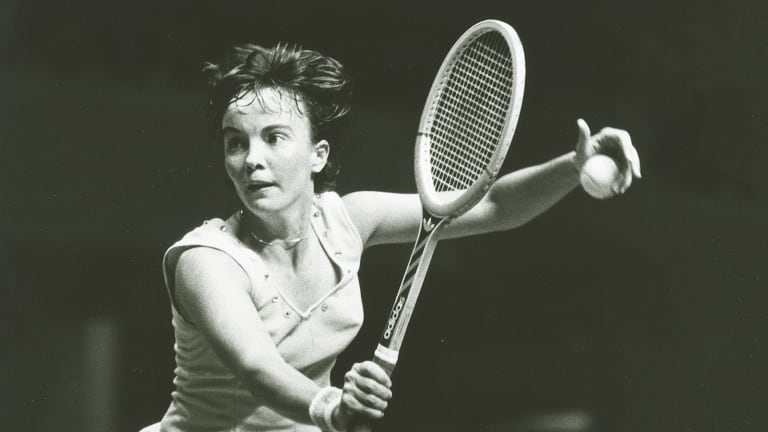As the years pass, Kerry Melville Reid "gets more proud" of Original 9
Sep 23, 2020Tennis.com Podcast
Through the eyes of a pioneer: Rosie Casals talks shop on the TENNIS.com Podcast
By Mar 11, 2022Original 9
Standin' in the Hall of Fame: The Original 9 remind us that "giving and getting go hand in hand"
By Jul 17, 2021Cutting class for good reason, Kristy Pigeon steps out with Original 9
By Sep 22, 2020Original 9, Nancy Richey: a vital call with dad and lunch with Gladys
Sep 21, 2020Original 9, Valerie Ziegenfuss: "We had to get people in the stands"
Sep 20, 2020Original 9, Judy Dalton: survey proved male interest in women's tennis
By Sep 19, 2020Must start somewhere: Original 9 a "no brainer" for Peaches Bartkowicz
Sep 18, 2020Original 9: Shaped by experiences, Julie Heldman saw it was "our time"
Sep 17, 2020Original 9: Rosie Casals on the "big change in our way of thinking"
By Sep 16, 2020As the years pass, Kerry Melville Reid "gets more proud" of Original 9
Said the Australian, “We really did stick our necks out. I’ve got two daughters and they just think it’s incredible that we did that. So that makes me happy.”
Published Sep 23, 2020
Advertising

As the years pass, Kerry Melville Reid "gets more proud" of Original 9
Advertising

As the years pass, Kerry Melville Reid "gets more proud" of Original 9